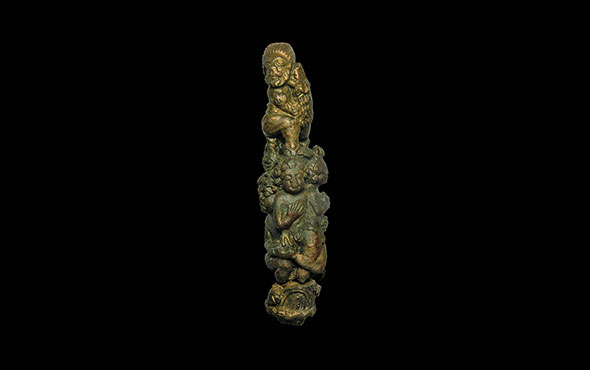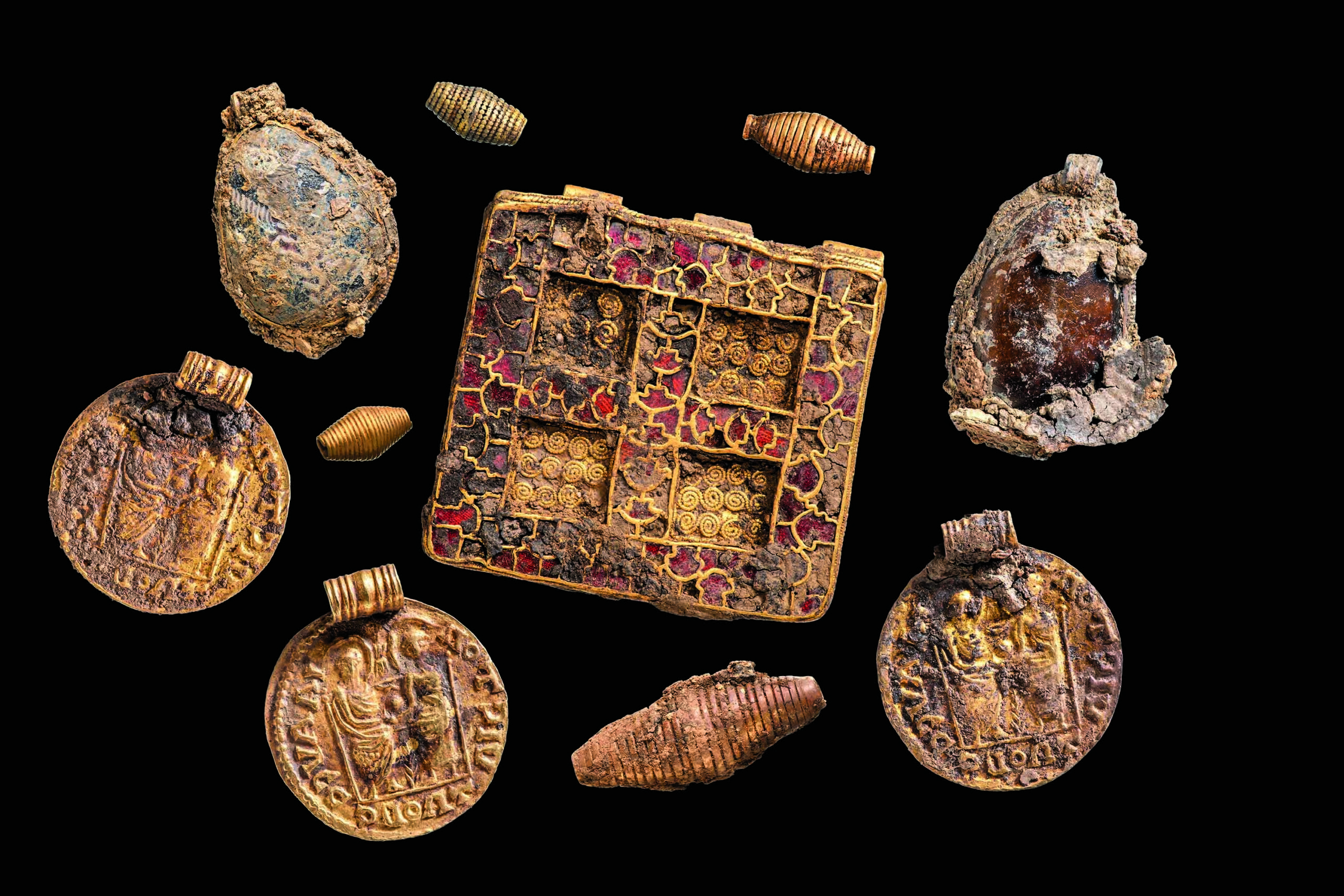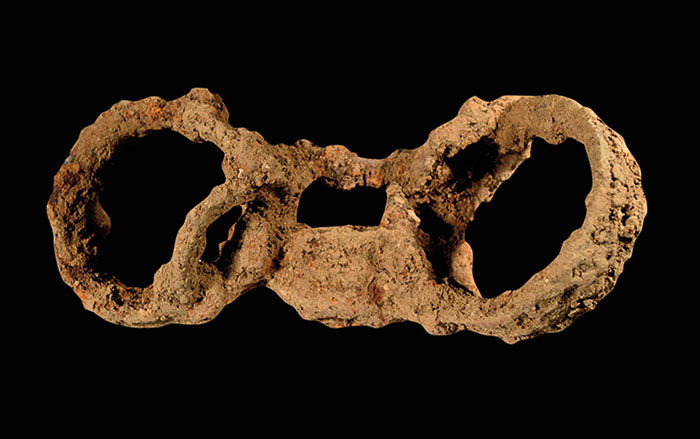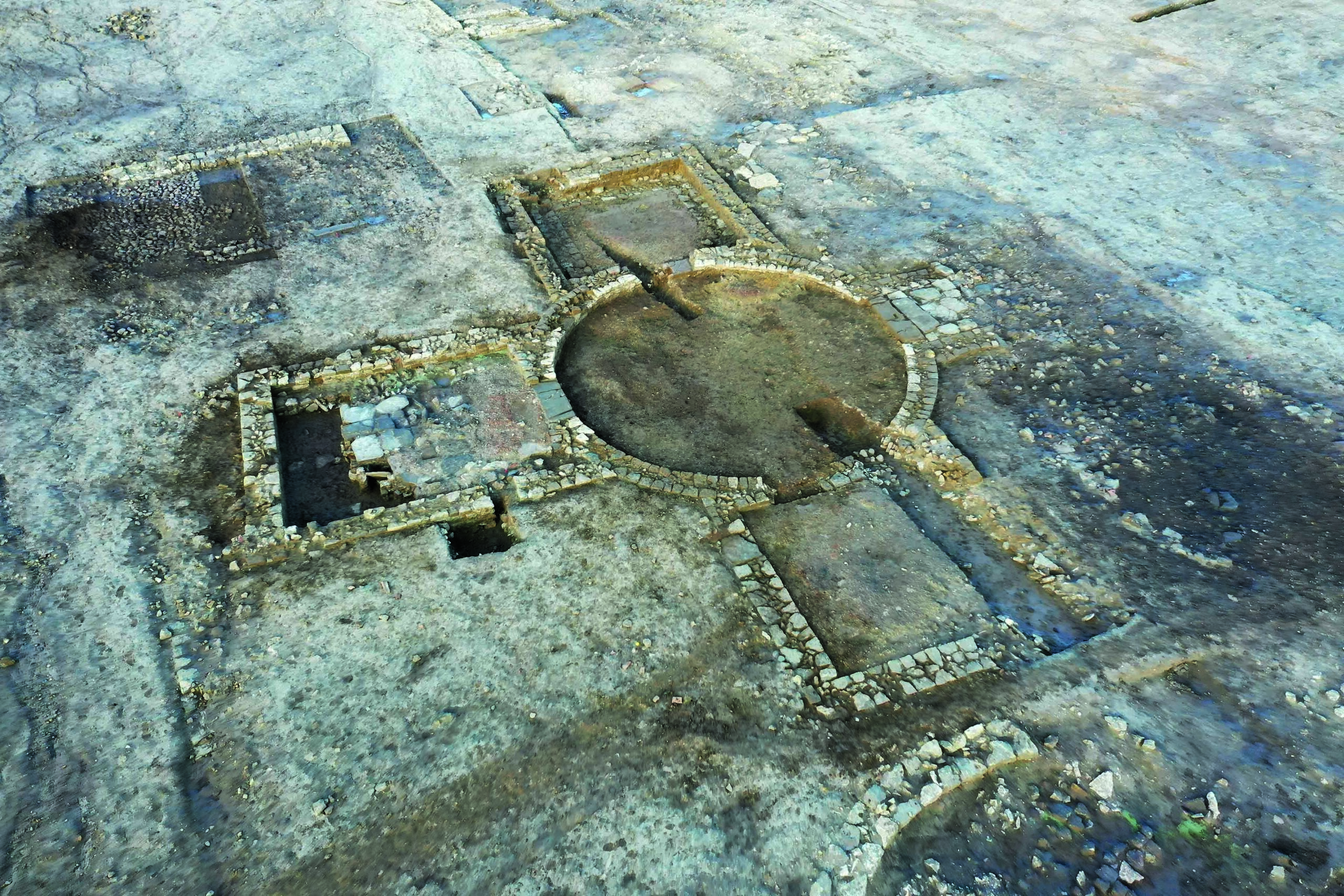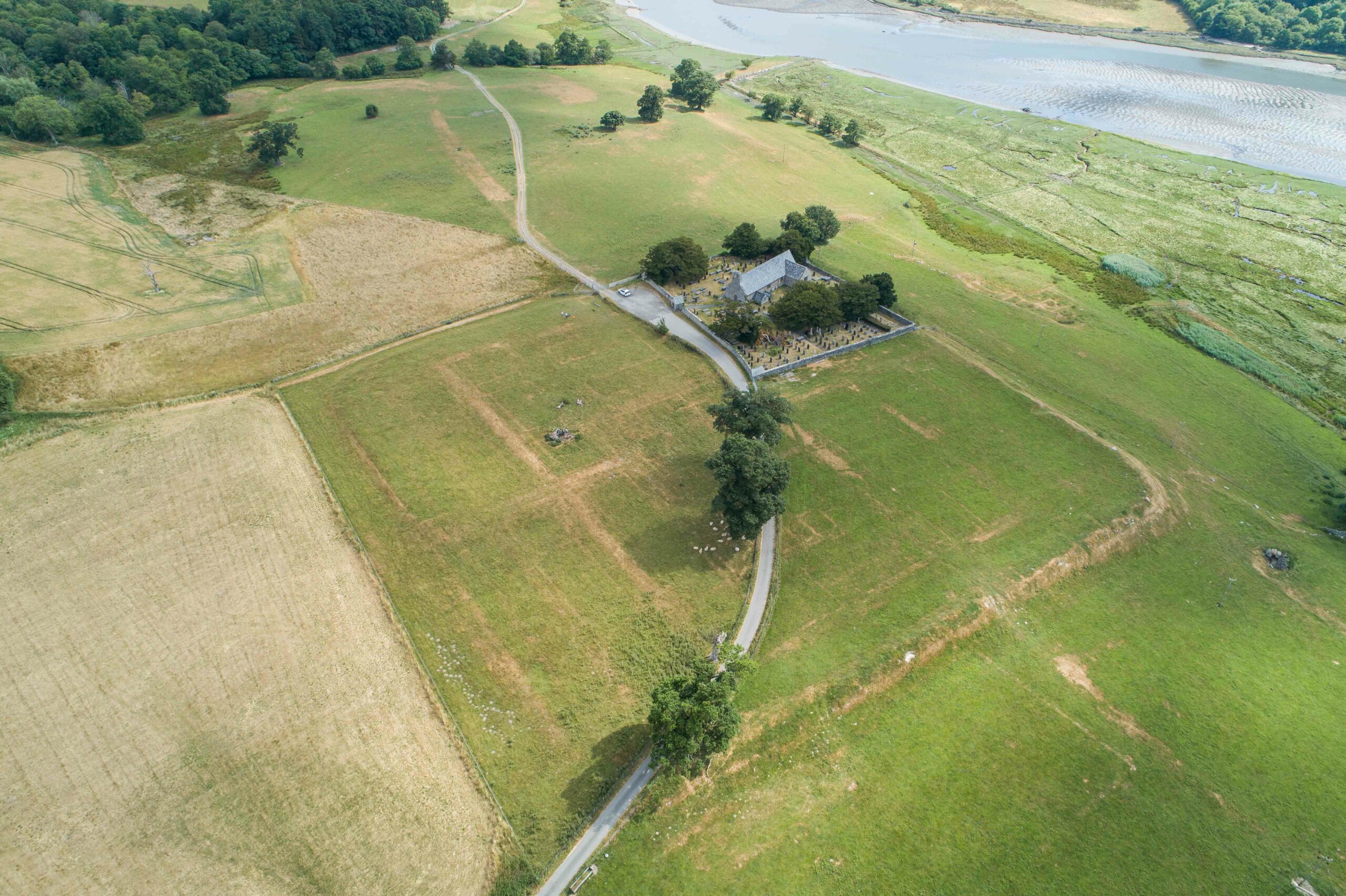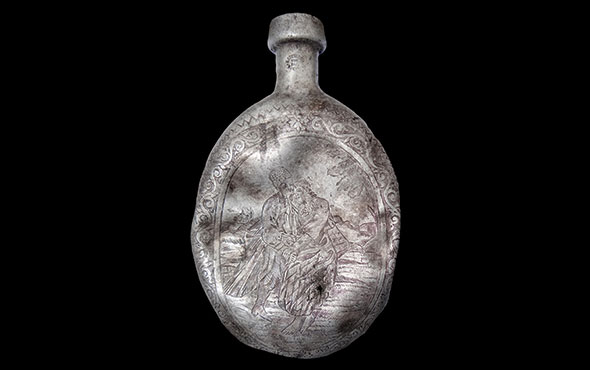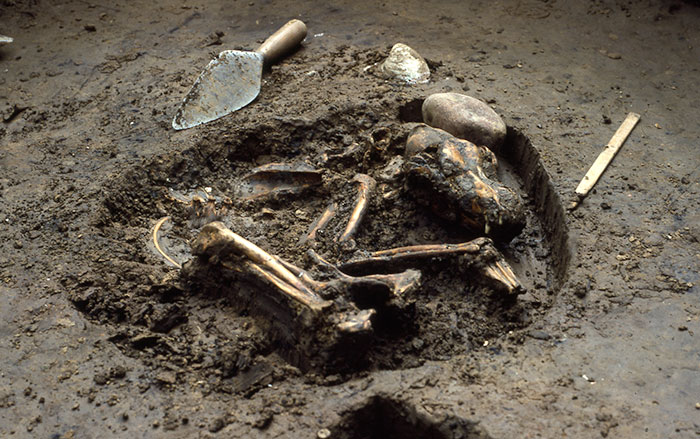
CAMBRIDGESHIRE, ENGLAND—According to a Royston Crow report, an excavation on the grounds of the Wimpole Estate, located in the East of England, has uncovered a settlement dating to between 100 B.C. and 150 A.D. Coins, cosmetic implements, horse harness fittings, brooches, a ring, imported pottery and glass, military uniform fittings, a spearhead, and an ax head were recovered from the site, which was situated near Ermine Street, a Roman road that linked London to Lincoln and York. Archaeologist Shannon Hogan of the National Trust said the team also found a small figurine made from copper alloy of a person holding a torc. The figurine is thought to represent the fertility god Cernunnos. “The artifact is Roman in origin, but symbolizes a Celtic deity and therefore exemplifies the continuation of indigenous religious and cultural symbolism in Romanized societies,” she explained. For more on Roman England, go to “London’s Earliest Writing.”


